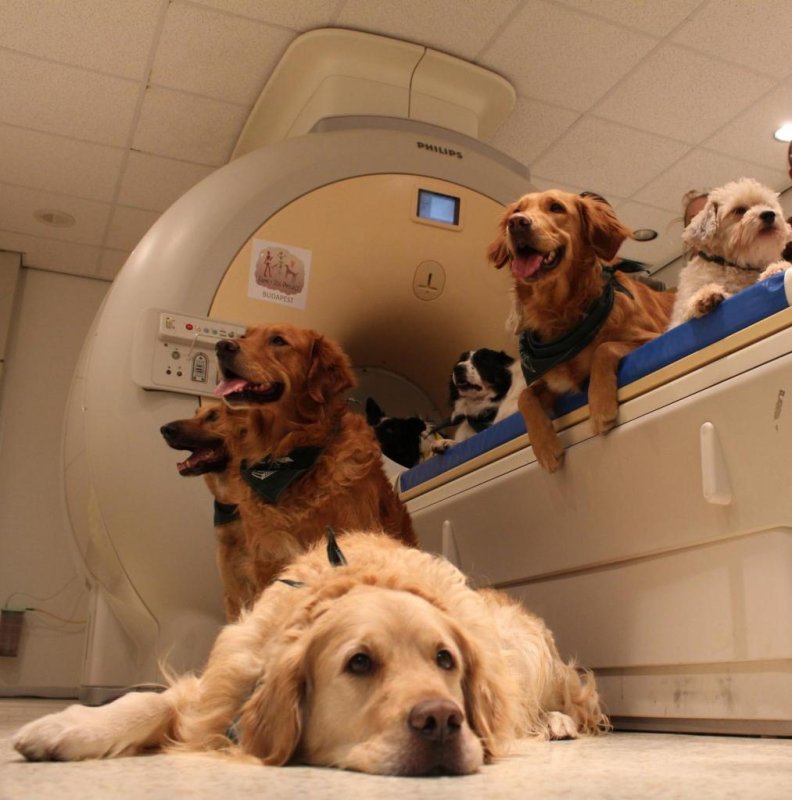Dogs wait their turn in the fMRI scanner. Photo by Eötvös Loránd University/Enik? Kubinyi
BUDAPEST, Hungary, Aug. 30 (UPI) -- A new study suggests dogs understand words and intonations in human speech.
When a team of scientists in Hungary monitored the brain activity of dogs while listening to human speech, they found the canines used the same region of the brain as humans to distinguish different words, sounds and tones.
"We trained dogs to lie motionless in an MRI scanner awake, and unrestrained for several minutes," Attila Andics, a researcher at Eötvös Loránd University, explained in a news release. "We let them listen to their trainer's speech and at the same time we measured their brain activities."
During the experiments, dog owners voiced different combinations of words and tones: praise words with approving intonation, praise words with neutral intonation, neutral words with praising intonation, and neutral words with neutral intonation.
Neural signatures on the fMRI scans showed dogs differentiate between words regardless of intonation, suggesting dogs can process vocabulary. The brain scans also showed dogs process intonation in a separate region of the brain, in auditory regions in the right hemisphere, just as humans do.
"This shows... that dogs not only separate what we say from how we say it, but also that they can combine the two for a correct interpretation of what those words really meant," Andics said.
Because domestication happened over a relatively short period of time, scientists believe it's unlikely human influence alone accounts for the development of vocabulary and intonation processing centers in the brain.
Instead, they say there may be ancient evolutionary links between canine and human brains worth exploring.
The latest research is scheduled to be published online this week in the journal Science.















